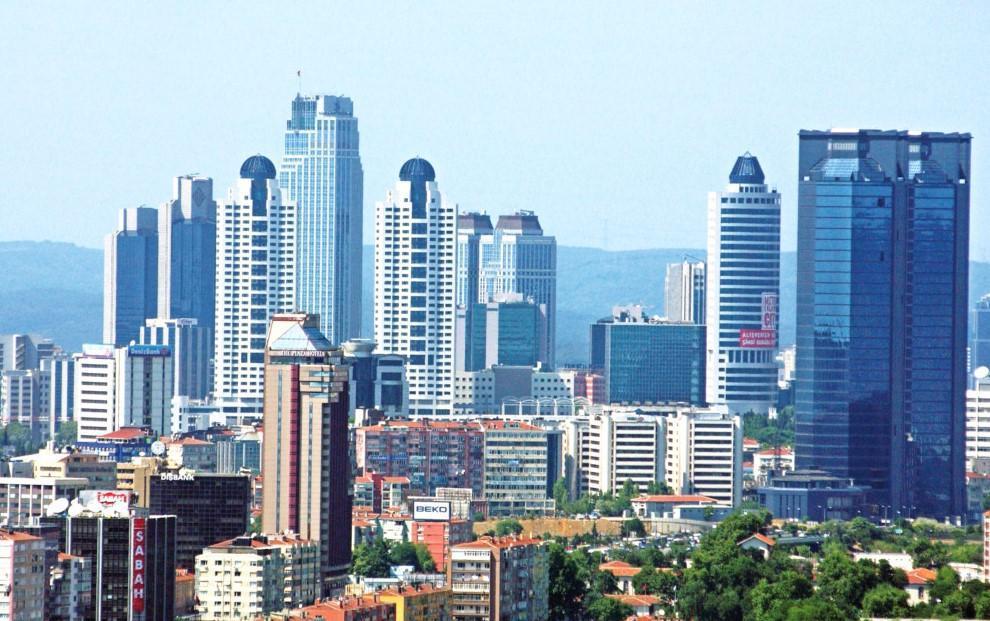
Dense construction and lack of green spaces in cities are behind the torrid heats which still lasts in most parts of the country, some experts have said, urging to build more environmentally friendly buildings.
Informing about the “heat-island” effect in a social media post, climate scientist Barış Önol, an associate professor from Istanbul Technical University (İTÜ), explained the situation by giving an example.
“Surface temperatures above 40 degrees Celsius [104 degrees Fahrenheit] in Istanbul on Aug. 17 at noon reached 50-55 C [122-131 F] in densely constructed areas,” Önol said.
Some experts also point out that this effect causes an increase in temperature especially in Bağcılar, Esenler and Esenyurt districts of the metropolitan city of Istanbul, where housing is dense.
“The construction and asphalts in Istanbul cause an increase in temperature of 4-5 C [39-41 F]. Skyscrapers, asphalt roads and the absence of greenery are behind the heat-island effect in the city,” Orhan Şen, a prominent meteorologist, told daily Milliyet.
“If you compare an area harboring skyscrapers with a greener area in the same city in terms of temperature, you see that the first is 4-5 C warmer,” Şen said.
The temperature values have never dropped below the seasonal norms this year, except for a few days, he added.
Stating that the heat-island effect in even Istanbul’s areas close to the Bosphorus, Black Sea and Marmara coasts soared by 3 C (37 F), Selahattin İncecik, a professor from İTÜ, said, “This figure increases in the inner parts of the city and densely constructed districts.”
“This problem will last as long as we do not use materials that will reduce this effect and plan accordingly,” said İncecik, adding that the only way to do this is to increase watersheds, green areas and build “green buildings.”
Green building is the practice of creating structures and using processes that are environmentally responsible and resource-efficient throughout a building’s lifecycle from siting to design, construction, operation, maintenance, renovation and deconstruction.
The heat-islands gradually increase its impact, according to İncecik, warning that as long as the current mentality continues, each summer will make people long for the previous one.
Noting that this effect is also experienced in winter, Adil Tek, a professor from Boğaziçi University, said, “Though the temperature in Istanbul is not at extreme levels, the humidity is high compared to the past, which is due to the Basra low pressure system, which will last until Sept. 15.”
“If it were not for the Bosphorus and the Black Sea coasts, Istanbulites would almost be unable to breathe,” the expert added.
Meanwhile, according to the five-day weather forecast report published by the General Directorate of Meteorology on Sept. 8, warm weather is expected to prevail until the cold weather comes from Russia on Sept. 13 and the air temperature drops noticeably.
While there will be showers and thunderstorms in the southwestern provinces of Kırklareli and Tekirdağ on Sept. 12, heavy rains can be seen in the Black Sea region as of Sept. 13, according to the bureau.
Stating that the country will warm up again next weekend, the bureau said that temperatures will increase especially in the southern province of Antalya, and Aegean and Central Anatolia regions.